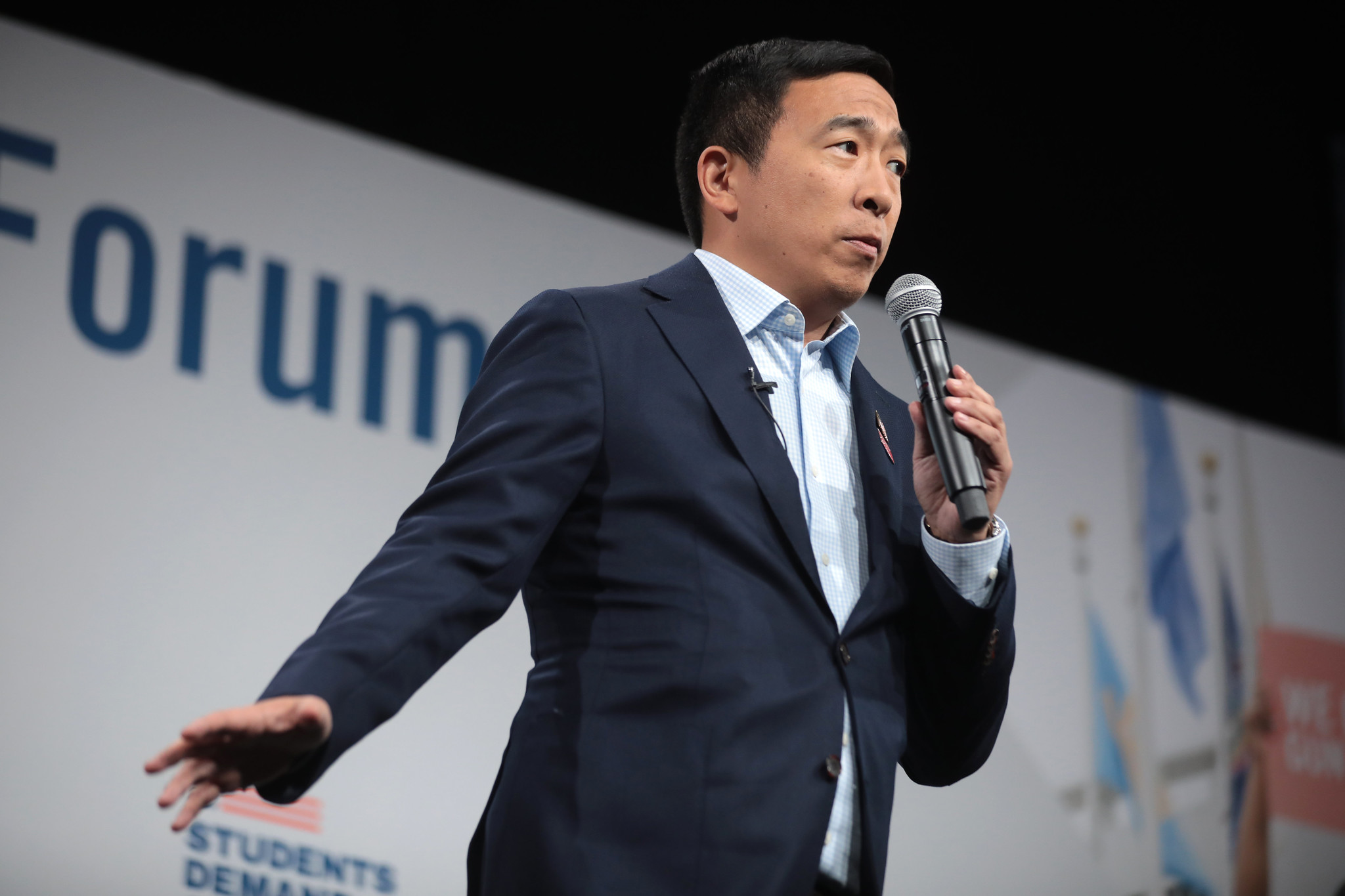
30 Jan On testing, Andrew Yang’s math doesn’t add up
By Dale Chu

Presidential candidate Andrew Yang has worn many hats. The one that simply reads “MATH” gets the most attention, but his role and what he learned as the former CEO of a test prep company merits further scrutiny from education advocates now that he’s earned a spot on New Hampshire’s debate stage.
In an extensive interview Yang provided in December to the New York Times as part of its much maligned endorsement process, the presidential aspirant, entrepreneur, and father of an autistic son went into considerable detail about his criticism of standardized tests:
We originated the SAT during World War II as a way to determine which kids we did not want to send to the front lines. Now we treat our kids like every year is wartime. I’ve talked to parents and teachers around the country, and I’ve said, we need to de-emphasize these standardized tests. They are a terrible measurement of human value, certainly have nothing to do with character. At this point, they are more likely to test your parents’ socioeconomic status than anything else.
So we need to have better, more holistic ways of measuring how our kids are doing educationally, and we need to empower teachers and let teachers do their jobs. Because if you are a teacher and you’re teaching to the test, you end up making decisions in the classroom that you know are not right for the students.
All red meat at the anti-testing altar, but the math here simply doesn’t add up.
First, Yang’s synopsis of the SAT is a gross oversimplification, and not unimportantly overlooks the SAT’s role in mitigating higher education’s historical place as a province of the upper class. (Notably, the country is currently backsliding in this effort.) His suggestion that kids today are being discriminated against as a result of standardized tests has it exactly backwards: the SAT is the least inequitable part of college admissions.
Second, Yang’s statement that standardized tests are a poor judge of human value or character is a straw man. The last time I checked, state tests are primarily focused on language arts and mathematics. It’s true there’s a link between proficiency and socioeconomic status, but that’s because too many schools continue to short change low-income students of color, and it’s a big reason why schools and districts have increased their focus on growth.
Third, “holistic ways” of measurement makes for a fine sounding talking point, but it’s a straight line from this warmth and fuzziness to schools sans-testing and accountability. And what’s the use of “empowering” teachers if they don’t know how their students objectively stack up against their peers? Besides which, “teaching to the test,” done well, is actually a very good thing.
Last September, Yang earned plaudits—deservedly so—when he said, “I am pro-good school.” But he has apparently failed to consider how states determine whether a school is good (or bad) in the first place (Spoiler alert: mainly through standardized tests). Granted, tests are not perfect, and the ongoing efforts to improve them are laudable. Yet they are an essential guardrail against educational inequities. It’s impossible to be “pro-good school” if you eliminate the primary mechanism by which schools are differentiated.
Yang says that he was good at standardized tests when he was young, but has come to the myopic conclusion that they are a “terrible measurement of anything other than whether you are good at the test.” For someone who claims to be “non-ideological and data-driven,” it’s an egregious error that scapegoats testing when the real culprit—the establishment’s aversion to accountability—remains hidden in plain sight.
Photo credit: Gage Skidmore


No Comments